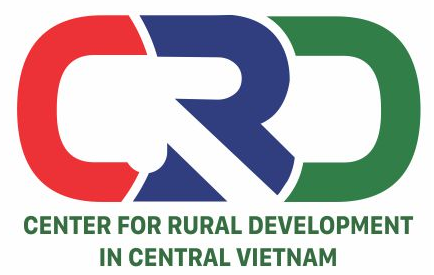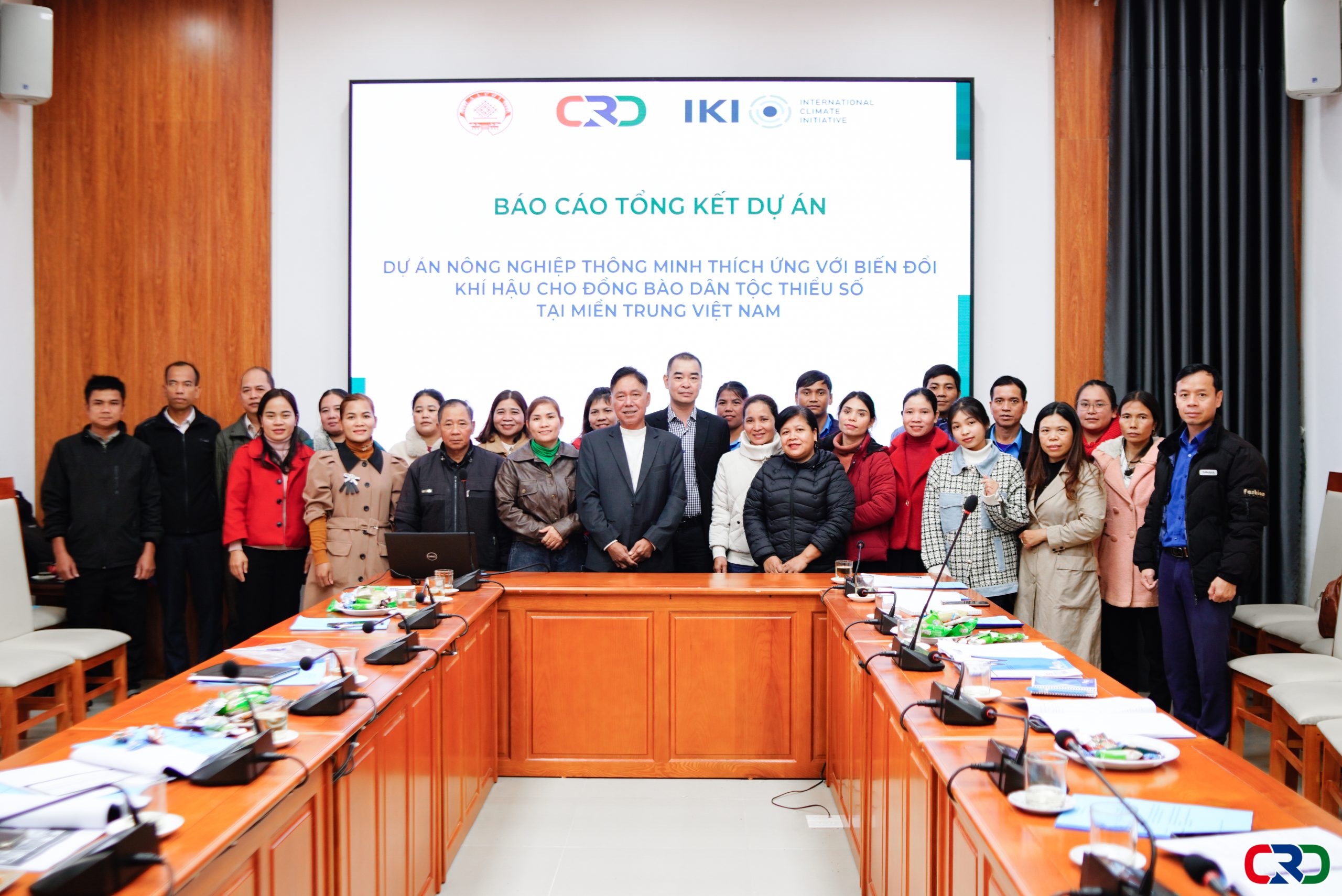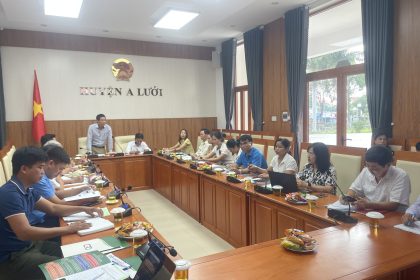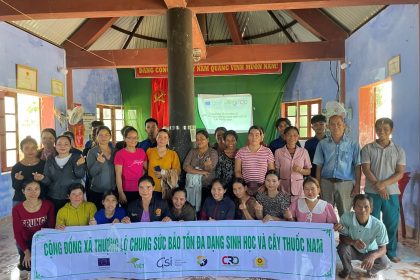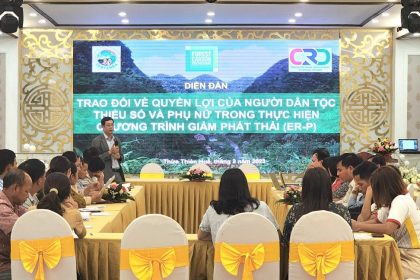The workshop was attended by 65 representatives from Oxfam UK, the functional departments and chambers of Thua Thien Hue Province: Departments of Forestry, Forest Protection Department, Forest Protection Unit of Nam Dong District and Division of Natural Resources and Environment of A Luoi District, together with the participation of more than 40 households participated in the research and 10 reporters from local and central newspapers and broadcasting stations.
Opening the workshop, Mr. Hoang Manh Quan – Director of CRD, the Coordinative Organization of Forest Land Coalition (Forland) delivered a brief report including the introduction about Forland and the research that Forland experts had conducted. The workshop was an opportunity for the research team to share and assess the findings of the survey on the enforcement of Law on Forest Protection and Development (FPD) in 2004.
Mr. Le Van Lan, the representative of the research team, presented the research results. According to the results of secondary data analysis combining with the primary information collected from the people, group discussions and interviews with experts, Thua Thien Hue Province had more 307.000 ha of forestry land, in which the area of land with forest occupied nearly 283,000 ha, the coverage reached 56%. From 2000 – 2011, the province allocated 19,322 ha of forest for the people to manage and protect. Through the primary data, the research group has discovered 07 issues in the allocation enforcement which are: the positive results brought about by the forest allocated to household groups, the un-proven ownership of the household groups to the allocated forest, the lack of punishment mechanisms to illegal timber logging, the right of forest owners when dealing with infringements, the difficulties in forest protection mechanism due to no beneficiary mechanism and salvage mechanism for rotten timber in forests.
The research team released 04 stories from community to demonstrate the findings of the research. Each story was a typical example from practice as the shortcomings in the law enforcement process has caused significant difficulties to the community in the protection and development of allocated forest areas.
At the end of the workshop, the participants discussed enthusiastically about the findings of the research team and the opinions of the people. From the perspective of the State management agencies, leader representatives of the specialized agencies had expressed their viewpoints exact and consistent with the changing situation of the country. “Property rights (rights to possession, use, and disposal) of natural resources: there is decentralization, empowerment of the State to other subjects. These rights have been unclear, to some extent”, said Mr. Nguyen Dai Anh Tuan. Mr. Nguyen Huu Huy – Provincial Department of Forestry revealed,”Regulations on community forest allocation remains inappropriate. It needs to consider forest management in terms of households, families and customs instead of the whole village. The fact that forest allocation does not associate with land allocation is due to the differences in the viewpoints of the 02 sectors”.
According to Mr. Pham Quang Tu – Coordinator of Coalition Advocacy Support Programs by Oxfam, “The State has natural forest closure policy, so what is the mechanism for the State to encourage the people to participate in natural forest protection? What are the recommendations for issues that have the same scopes of adjustment as those in Land Law and Civil Law?”
In addition, the workshop also recognized comments from the participants on such issues as: regulations of forest allocation to residential communities was not really suitable; the limitations and obstacles on the legal side in forest land allocation to households still remain; forest allocation was not associate with land allocation, the procedure of granting or changing of certificates of forestry land use right for the people was time-consuming; there was no suitable beneficiary policy for people involved in forest management and protection and so on.
At the end of the workshop, Ms. Do Bich Thuy – specialist from Oxfam summarized and reach a consensus with the representatives on making recommendations for the following issues: (i) The definitions of forest owners and residential communities (ii) The right of forest owners must be defined clearly in the law, (iii) Adding initial supportive policy to forest owners, (iv) A specific mechanism is needed to guide the implementation of the documents/policies and (v) Supportive policies are needed to allocation and after forest land allocation.
FORLAND confirmed that the comments at the workshop served as a basis for making recommendations to contribute to the amendment of the law in 2015. The activity of policy advocacy of the Coalition was based on specific evidence so that FORLAND planned to expand the research area and subjects in order that the recommendations of the Coalition are more valuable when being sent to policy makers.
FORLAND
Top of Form
